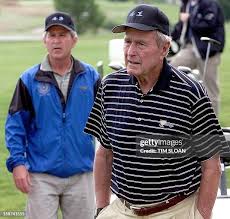
Introduction
The position of the German Chancellor is one of the most significant roles in European politics, acting as the head of government in Germany. This position not only influences national policies but also plays a crucial part in shaping the European Union’s political landscape. As Germany navigates current challenges such as economic recovery post-pandemic, climate change initiatives, and global conflicts, the role of the chancellor remains vital and is closely watched both domestically and internationally.
Who is the Current German Chancellor?
As of 2023, Olaf Scholz serves as the German Chancellor, having taken office in December 2021. A member of the Social Democratic Party (SPD), Scholz succeeded Angela Merkel, marking a significant shift in German politics. His leadership style has been characterised by coalition-building, as he heads a government formed with the Greens and the Free Democratic Party (FDP). Scholz’s government has faced an array of challenges, particularly the lingering effects of the COVID-19 pandemic and the ongoing war in Ukraine, which has had a considerable impact on Germany’s energy policy and economy.
Key Issues and Challenges
Under Scholz’s leadership, the German government has had to tackle several pressing issues. The war in Ukraine has spurred a re-evaluation of energy independence in Germany, traditionally reliant on Russian gas. The chancellor has focused on diversifying energy sources and increasing investments in renewable energy to ensure long-term sustainability and security.
In addition to energy challenges, the Scholz administration is working towards economic recovery in the wake of the pandemic. Germany’s economy, known for its strength in manufacturing and exports, has been affected by inflation and supply chain disruptions. The chancellor’s strategies include fiscal reforms aimed at stimulating growth and maintaining jobs.
Domestic Political Landscape
The coalition government faces internal challenges as parties navigate differing priorities. Notably, the SPD, Greens, and FDP each have unique voter bases and policy agendas, which can lead to tension in decision-making. The recent state elections have shown fluctuating support for the coalition, prompting Scholz to emphasize unity and collaboration among the partners.
Conclusion
The role of the German Chancellor is increasingly pivotal as Germany confronts a complex array of socio-economic and geopolitical issues. Olaf Scholz’s capacity to effectively lead and make decisive actions will shape not only Germany’s future but also its influence within the European Union and on the global stage. As the country continues to adapt to evolving challenges, the performance of the chancellor and the coalition government will be crucial for maintaining stability and progress.
You may also like

The Important Role of Government in Modern Society

Understanding the Current Political Landscape in the UK
